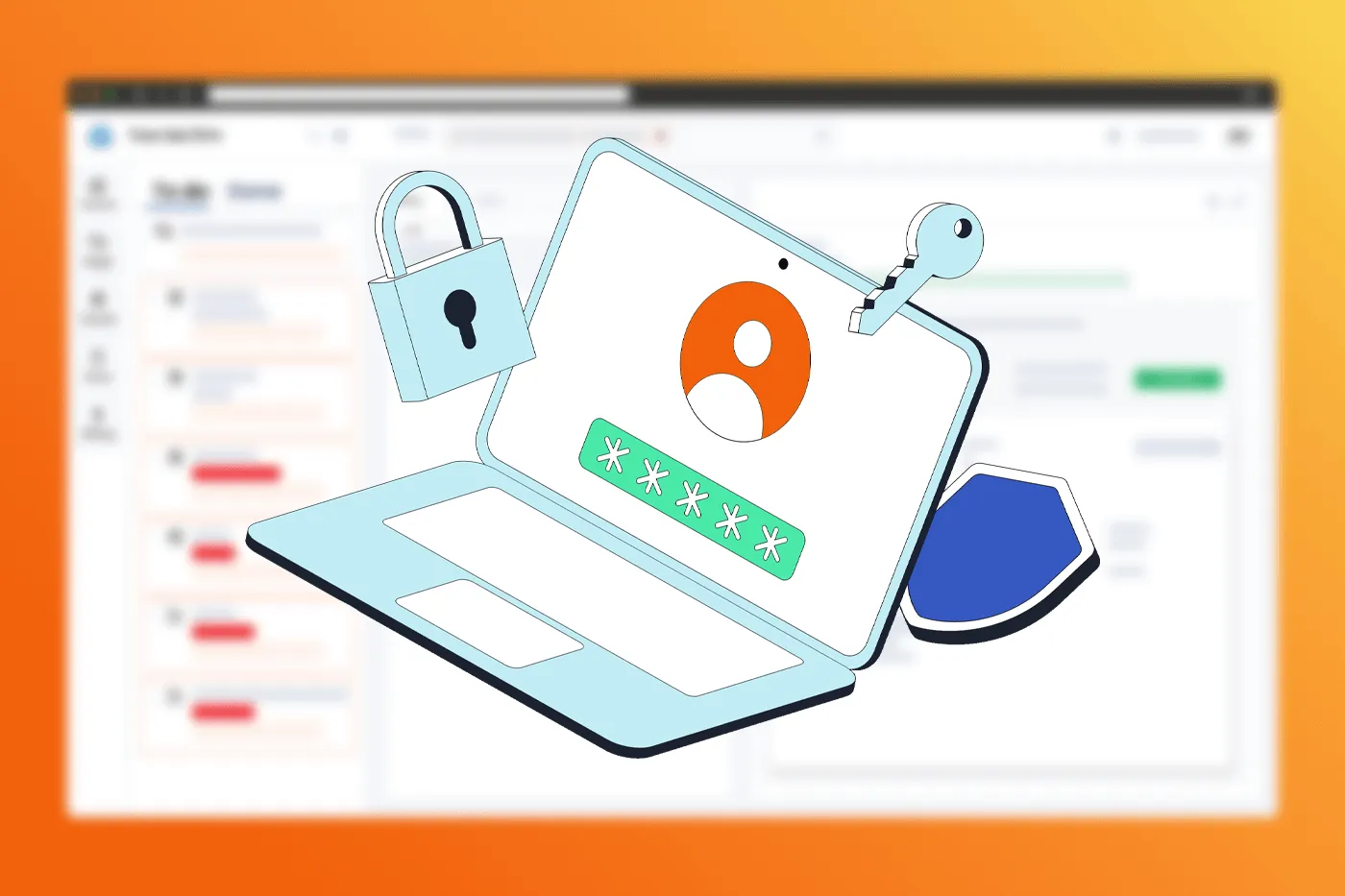Law Firms Can Have Their Cake and Eat It, Too: Growth as a Client Centric Firm
Written by
|
October 31, 2023
Written by Smokeball
|
October 31, 2023

Written by Jordan Turk
|
October 31, 2023
.webp)
You already strive to provide the best legal counsel and services in your industry, but do your clients love working with you? Have you made their client experience your competitive advantage?
Your clients want more than reliable and best-in-class legal advice. They also want to feel supported, prioritized, and informed during your attorney-client relationship. They never want to feel like their case is slipping through the cracks or out of the loop while working with you.
On the other hand, you have to balance the needs of multiple clients and maintain healthy work-life and attorney-client boundaries.
So, how can attorneys reasonably provide the type of client experience that they are looking for? Can you have your cake and eat it, too?
You can design a smoother and more positive, white-glove-feeling client experience by utilizing technology to help your law firm attract and retain clients without placing additional burden on your legal team. This article will take a deep dive into designing a better client experience by using client-centric software that was developed for the legal industry.
What is Client Experience?
According to the American Bar Association, client experience encompasses all aspects of client interaction with your law firm. It is everything they experience, from the first inquiry or consultation call to the moment they walk out of your office after the case is over. The client experience includes:
- Communication between the client and attorney.
- The simple sharing of information and files.
- Other vital aspects of the representation.
The ABA Model Rules for Professional Conduct 1.4 states there must be reasonable attorney-client communication for a client to participate in their representation effectively. Optimizing your client experience to include frequent client communication through a mobile application, email, phone calls, etc., is crucial to providing good representation. If your firm is not prioritizing client communication, that can hinder the client experience and negatively impact the case outcome.
Great firms nurture great relationships from start to finish… or referral.
This timeline from inquiry through resolution (and hopefully referral) represents the client lifecycle or customer journey with your firm. According to McKinsey, a customer journey looks at the end-to-end client experience rather than focusing on specific touchpoints throughout your attorney-client relationship. Essentially, your customer journey determines what your clients see, feel, and hear at every stage of working with your firm.
Ask your legal team the following questions to determine the quality of client touchpoints along this customer journey:
- How easy is it for a prospective client to book a consultation? Is your website set up to capture their information quickly and easily for follow-up?
- How frequently do you update your existing clients on the status of their case? Do you have firm-wide policies established that are reflected in your legal workflows and set up within your legal software systems?
- How seamless is your billing process, not only for your staff to send invoices but for your clients to pay? Does the legal billing and software you currently use make
- How often do your clients return for future legal matters or send new business your way? Can and are you tracking these statistics with your legal practice management software?
You can either cultivate a positive client experience that makes your clients feel heard and safe with your firm or create a negative client experience that causes them to change representation and leave a negative review.
Here are just a few of the benefits of creating a positive client experience:
- More referrals to friends and family
- Better online reviews
- Reputation of having a strong client experience
- Generate more leads without paid advertising
- Increase in firm revenue
The bottom line is that when your clients are happy and have a good experience, your law firm’s reputation and revenue can increase substantially.
What is a Customer-Centric Experience?
Becoming a customer-centric law firm is a way to improve the client experience. Customer centricity not only considers what your client thinks and feels throughout the customer journey. Customer centricity implements tactics to support a smooth and positive interaction with your firm during each stage.
According to Gartner, customer centricity is the ability of an organization to understand the customer’s expectations, perceptions, and situation. In the context of a law firm, a customer-centric experience puts the client at the forefront of everything the law firm does to ensure the legal team is best serving them.
While serving fewer clients and having strong community ties could be one approach, most firms are trying (and struggling) to grow. So, personalization by taking on less business is not the answer. Technology should also support both customer centricity and law firm growth with automated communication reminders to inform, update, or stay in touch with clients.
Fortunately, it is possible to create a customer-centric atmosphere in a law firm of any size. Your law firm needs to be intentional about how you create and market your client experience.
What Does a Customer-Centric Law Firm Look Like?
- Processes are designed around the client rather than the law firm.
Client-centric communication can be simple. These processes allow the client to stay informed throughout their case. You can send an email updating the client on the status of their case every Friday, for example. Or automate follow-up emails to prospective clients after their intake or consultation appointments asking if they have additional questions. Even after a case is closed, law firms can stay top of mind by sending holiday greetings or happy birthday wishes. Processes designed around the client keep the client’s wants and needs in mind.
- The office is set up to be most comfortable and efficient for the client
Adequate seating in the waiting room, allowing intake processes to be completed at home before in-person meetings, and plenty of private meeting spaces in the office are just a few ways to make a client comfortable engaging with your firm. For many clients, meeting with an attorney is stressful, so by making the office accessible, comfortable, and easy to navigate, you can make your clients feel more at ease and confident in your legal services. - Communication processes are focused on the client
By using tools like legal technology software, you can automate certain communication to the client including appointment reminders, follow ups after intakes, consultations, and regular appointments to find out if they have questions, and simple text or instant messaging features that allow the client to contact their attorney at any time. - The law firm’s marketing showcases the firm’s client-centric values
Not only should you focus on your client’s experience working with the firm, but also how you position your law firm in your marketing. By leveraging client reviews, referral statistics, and other evidence that your law firm puts clients at the forefront of your work, client-centricity can become a part of your brand and reputation.
A law firm that focuses on client-centricity puts the client first in every single detail in the development of its law practice by harnessing the power of technology and other tools.
Customer Experience Matters at a Law Firm
As a lawyer, you are responsible to your clients to act in their best interest. Operationally, this includes timely and transparent communication and aligning your case strategy as closely and reasonably as possible with their goals. You must balance their needs with your obligation to meet your billable hours quota. If you own or manage the firm, you have an additional responsibility to ensure profitability.
Creating a customer-centric law firm can have a positive impact on your law firm’s profitability and reputation. At first glance, you may think that focusing on tasks directly tied to revenue (high-profile cases, higher retainer rates, more clients, etc.) will move the business forward, but there’s more to the story.
Law firms gamble their growth on bad client engagement
To generate more money for your law firm, you need happy clients. Happy clients are made from the moment they contact your firm. According to the 2019 Legal Trends Report (older report but still relevant data), 60% of law firms contacted over the phone or email did not respond to new client inquiries. If your prospective client calls are going unanswered, how easy is it for your clients to get in contact with you? And how much revenue are you leaving on the table?
Rather than designing your law firm’s processes to attract as many clients as possible, handle their cases quickly, and send them out the door to make room for new clients, think about what your client needs from you to feel confident in your legal services and happy with their experience, because doing so will ultimately drive more business and referrals.
When you own or manage a law firm, you have the unique opportunity to design the client’s experience every step of the way. You can achieve revenue goals by creating the best environment and experience for your clients.
How to Bring Client Centricity to Your Law Firm With Legal Technology to Enhance Your Client Experience
What do you want your law firm to be known for? If you wish to have the reputation of always putting your clients first and having a high success rate, consider how you want to engage with your clients. Suppose your law firm is committed to being highly engaged with your clients, putting them first, and consistently working towards building a better client experience. In that case, your firm will live up to that reputation.
While plenty of law firms do not focus on delivering a customer-centric experience, differentiate your firm by putting your clients at the center of everything you do, they will be more likely to be satisfied with their representation and send you referrals.
Start with what your clients need and work backwards to process and tech
To start, focus on what you can do to deliver a client-centric experience and then find tools to bring that to life. Steve Jobs said, “You’ve got to start with the customer experience and work backward to the technology- not the other way around.”
Think about what your customer wants. What are their goals when they come to you for representation? What do they need from you? How involved do they want to be in their case? Answering these questions from a client’s vantage point can help you figure out how often to communicate with them, by what channels, the information they want access to, and how you can best serve them.
Get a handle on every touchpoint in your client’s journey with your firm
Creating a client-centric experience for your law firm requires looking at all touchpoints with your clients. Audit your clients' current experience and look for areas of improvement. Review your client's customer journey, looking for gaps in their experience that could be supported by legal technology.
Client surveys are a great way to gather this kind of feedback. Tracking your law firm's NPS score over time will help you recognize what's working and what's not.
You're the expert, make sure your processes and legal engagement reflect that
Audit your communication, invoicing, file sharing, and other critical aspects of running a firm. Your law firm clients are not legal experts, so they want you to keep them informed in ways they understand. They also need to know what you need from them, whether documents for discovery and evidence or other important information. Could you improve in any of these areas? Clients will feel like they’re empowered, active participants in their own success if your communication with them is clear and timely.
Regarding communication, consider what it must feel like to work with you. Your clients will be more satisfied with your law firm if they can easily schedule a consultation by booking an appointment online, securely communicate with their attorney through an app at any time, and receive frequent updates about their case.
Take the guesswork out of billing, clerical issues, and payments
Ensure invoicing and file-sharing options work for your client. While some clients might prefer snail mail, others want to make quick and easy online payments and have access to payment plans.
Enable your client centered firm with Law Firm Client Management Software
Running a customer-centric law firm involves ensuring clients feel supported and can easily access the information pertinent to their case. By using legal software that enables you to communicate and share files and documents on the fly, you can stay in closer touch. In turn, clients experience increased transparency and trust in their legal representation.
Features you should look for in legal software:
- Easy for both you and your client to use
- Has a mobile application or can be easily accessed from a phone
- Includes encrypted messaging for fast and secure communication
- The ability to safely share files and other critical information
- Flexibility to send, receive, and pay invoices
Smokeball legal client management software includes all of the features above and more. Not only can you improve your client's experience, but you can also track your time for billing purposes, integrate the software with Microsoft Word and other tools you use, manage your caseload efficiently, access legal templates, and other valuable, time-saving tools.
The goal of implementing legal technology is to improve your client experience by allowing your firm to focus on them. Client-centricity helps you retain clients, earn referrals, and gather positive reviews online. As a result, you'll build your law firm's reputation and increase your bottom line.
Learn more about Smokeball document management for law firms:
Book Your Free Demo
Ready to see how Smokeball client intake software helps you Run Your Best Firm? Schedule your free demo!

















